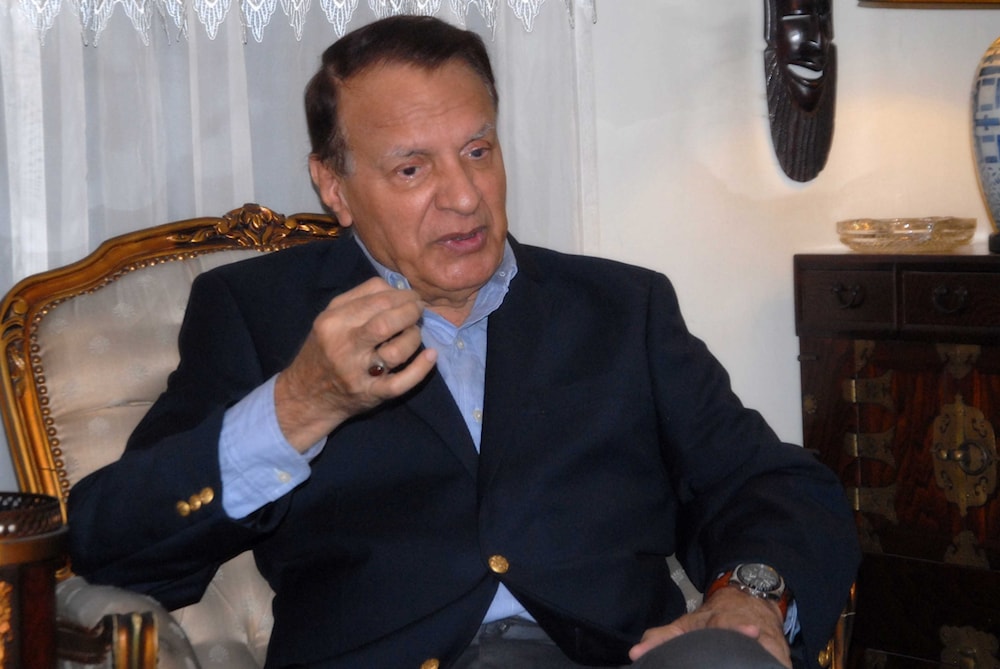Terrorist Jaish ul-Adl group backed by US: ex-Pakistani minister
In an interview with Mehr, Shamshad Ahmad Khan emphasizes the deep diplomatic ties between Pakistan and Iran, characterizing their relations as beyond the norm.
-

Shamshad Ahmad Khan, Pakistan’s former Foreign Secretary. (Pakistan Politico)
Jaish ul-Adl, whom Iran's Islamic Revolution Guard Corps (IRGC) carried out strikes against in Pakistan's Balochistan province, is a terrorist group with backing from the United States, Shamshad Ahmad Khan, former Foreign Secretary of Pakistan, pointed out.
In an interview with the Iranian Mehr News Agency, Ahmad Khan warned that a potential conflict between neighboring Iran and Pakistan would escalate tensions.
"Pakistan and Iran enjoy deep diplomatic ties, and the relations are not at a normal level," Ahmad Khan was quoted as saying, noting that the differences between the two countries are not fundamental but rather stem from strategic issues due to their geopolitical positions.
Highlighting the significance of both countries in the region, the former Pakistani secretary mentioned that Iran and Pakistan have consistently supported each other in times of need.
"Iran supported us in the 1965 war, and in 2002, when Indian forces reached the Pakistani border, Iran supported us at the time," he recalled.
Ahmad Khan stressed the reciprocal nature of the support, stating that Pakistan has also advocated for Iran in various situations. This, according to him, underscores the depth of the relations between the two nations.
According to Ahmad Khan, the latest tensions on the border between the two countries "have been pressured by the United States and Israeli regime."
He added that terrorist groups operating in Iran are shielded by foreign powers, and both Iran and Pakistan are well aware of the affiliations of these groups with foreign backers. He specifically identified Jaish ul-Adl as being under the auspices of the United States.
Elsewhere, Ahmad Khan mentioned that Washington uses the Jaish ul-Adl terrorist group to target Iran due to its support for Palestine.
On Thursday, the Pakistani Foreign Ministry announced that the Pakistani military carried out military strikes against what it called "terrorist hideouts" in Iran.
In a statement, Islamabad said it respects Tehran's sovereignty, adding that the "sole objective of today's act was in pursuit of Pakistan’s own security and national interest."
Iranian state media reported that three women and four children were killed after the explosions in the country's southeast.
"Pakistan attacked an Iranian border village with missiles," state television said, adding that "three women, four children were killed, all non-Iranian nationals."
Nasser Kanaani, the Iranian Foreign Ministry spokesperson, said Iran condemned the attack, confirming that the chargé d'affaires of the embassy of Pakistan in Tehran was summoned by the Ministry to officially notify the protest and request an explanation from the Pakistani government.
The strike came after the IRGC launched ballistic missiles and drones at a base of the terrorist group Jaish ul-Adl in Pakistan's southwestern Balochistan region in retaliation for terrorist attacks on its own territory.
The IRGC specified that its target included "gatherings of terrorists linked to the terrorist operations carried out in Iran recently."
The Jaish ul-Adl terror group has conducted several bomb attacks and kidnappings in southeastern Iran over the past years, targeting both civilians and security forces.
Following the IRGC strike, Pakistan declared suspending all high-level visits scheduled with Iran in the coming days, recalled its ambassador to Tehran, and announced that the Iranian envoy to Islamabad, who is currently visiting his country, "may not return for the time being."
The Pakistani Foreign Ministry also described Iran's strikes as an "unprovoked and blatant breach of Pakistan’s sovereignty" and in violation of international law and the principles of the UN Charter.
"Pakistan reserves the right to respond to this illegal act. The responsibility for the consequences will lie squarely with Iran," the Ministry said.
Read more: Who is Jaish ul-Adl whom the IRGC launched a strike against yesterday?

 4 Min Read
4 Min Read










